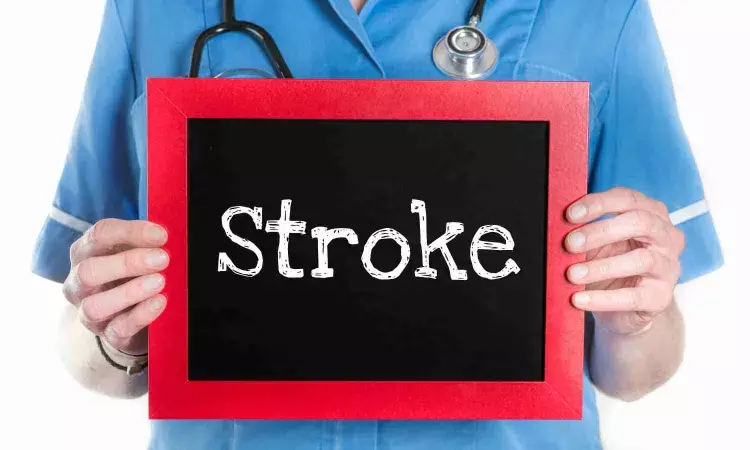- Home
- Medical news & Guidelines
- Anesthesiology
- Cardiology and CTVS
- Critical Care
- Dentistry
- Dermatology
- Diabetes and Endocrinology
- ENT
- Gastroenterology
- Medicine
- Nephrology
- Neurology
- Obstretics-Gynaecology
- Oncology
- Ophthalmology
- Orthopaedics
- Pediatrics-Neonatology
- Psychiatry
- Pulmonology
- Radiology
- Surgery
- Urology
- Laboratory Medicine
- Diet
- Nursing
- Paramedical
- Physiotherapy
- Health news
- Fact Check
- Bone Health Fact Check
- Brain Health Fact Check
- Cancer Related Fact Check
- Child Care Fact Check
- Dental and oral health fact check
- Diabetes and metabolic health fact check
- Diet and Nutrition Fact Check
- Eye and ENT Care Fact Check
- Fitness fact check
- Gut health fact check
- Heart health fact check
- Kidney health fact check
- Medical education fact check
- Men's health fact check
- Respiratory fact check
- Skin and hair care fact check
- Vaccine and Immunization fact check
- Women's health fact check
- AYUSH
- State News
- Andaman and Nicobar Islands
- Andhra Pradesh
- Arunachal Pradesh
- Assam
- Bihar
- Chandigarh
- Chattisgarh
- Dadra and Nagar Haveli
- Daman and Diu
- Delhi
- Goa
- Gujarat
- Haryana
- Himachal Pradesh
- Jammu & Kashmir
- Jharkhand
- Karnataka
- Kerala
- Ladakh
- Lakshadweep
- Madhya Pradesh
- Maharashtra
- Manipur
- Meghalaya
- Mizoram
- Nagaland
- Odisha
- Puducherry
- Punjab
- Rajasthan
- Sikkim
- Tamil Nadu
- Telangana
- Tripura
- Uttar Pradesh
- Uttrakhand
- West Bengal
- Medical Education
- Industry
Glibenclamide, a drug targeting cerebral edema, did not improve functional outcome in severe stroke patients: Study

Intravenous glibenclamide, a drug capable of reducing cerebral edema, did not improve functional outcome at three months in patients with large hemispheric infarction, a new study shows. The international randomised controlled trial did however confirm that the drug is safe and that there may be a beneficial signal in less severely affected stroke patients.
The CHARM study, presented today at the European Stroke Organisation Conference (ESOC) 2024, was a global, randomised, double-blind, placebo-controlled trial conducted at 141 hospitals. Patients who presented with large hemispheric infarction within 10 hours of last seen well were randomised to intravenous glibenclamide or placebo. The researchers primarily focused on the functional outcomes in both groups at three months, but also studied safety outcomes.
The group of patients who received intravenous glibenclamide (n=217 patients) did not have a lower likelihood of a poor functional outcome (common odds ratio [OR] 1.17; 95% confidence interval [CI] 0.80, 1.71) at three months, when compared to placebo (n=214 patients). The rates of serious adverse events were high in both groups, consistent with critical illness of the large stroke population.
Dr. W. Taylor Kimberly, one of the lead investigators on the study, from Massachusetts General Hospital, Boston, believes there is reason for optimism following CHARM. “We have learned a lot about glibenclamide during our 14-year journey from bench to bedside. When it comes to large hemispheric infarctions, we have wondered about a ceiling effect. How big a stroke is too big? Although we must be cautious in interpreting subgroup analyses, we have seen some promising signals in patients with medium-large stroke volumes (80-130 mL).”
Cerebral edema is a significant complication after ischemic stroke that can lead to neurological deterioration and death, especially in patients with large hemispheric infarction. The damage caused by stroke disrupts the blood-brain barrier and alters the function of ion channels, resulting in excess water accumulation and lesional swelling. Preclinical data and prior clinical trials have shown that glibenclamide can reduce cerebral edema following stroke by regulating the opening of ion channels through certain receptor proteins, the so- called surfonylurea receptor 1 (SUR1) proteins.
Dr Kevin Sheth, also one of the lead authors, from Yale School of Medicine, New Haven, adds, “We know the potential of glibenclamide through our translational research. However, getting everything right in a clinical stroke landscape that is evolving is challenging. It is very exciting to see consistent signals of potential drug effect across these various trial cohorts so that we can inform the next trial.”
Reference:
INTRAVENOUS GLIBENCLAMIDE FOR LARGE HEMISPHERIC INFARCTION: RESULTS FROM THE CHARM PHASE 3 TRIAL. Presented at the European Stroke Organisation Conference; 15 May 2024; Basel, Switzerland.
Dr Kamal Kant Kohli-MBBS, DTCD- a chest specialist with more than 30 years of practice and a flair for writing clinical articles, Dr Kamal Kant Kohli joined Medical Dialogues as a Chief Editor of Medical News. Besides writing articles, as an editor, he proofreads and verifies all the medical content published on Medical Dialogues including those coming from journals, studies,medical conferences,guidelines etc. Email: drkohli@medicaldialogues.in. Contact no. 011-43720751


